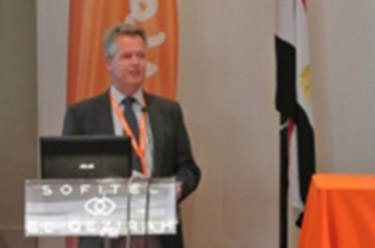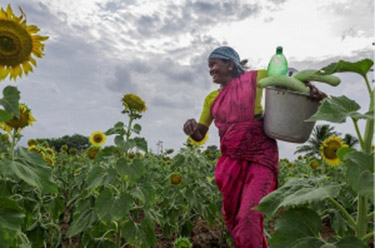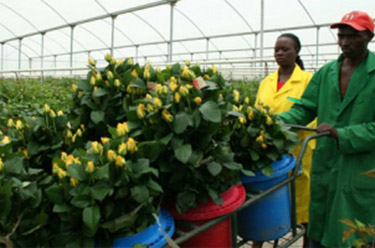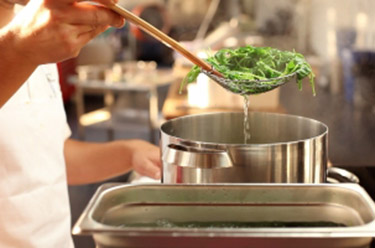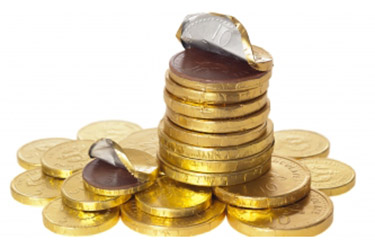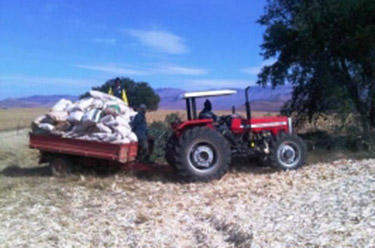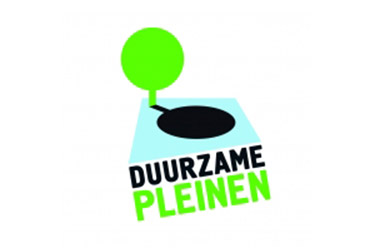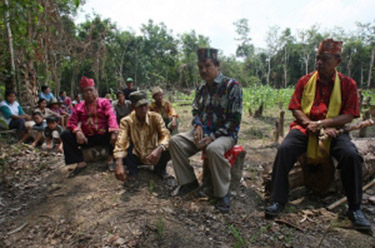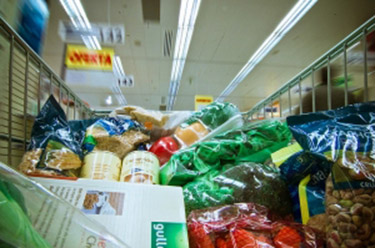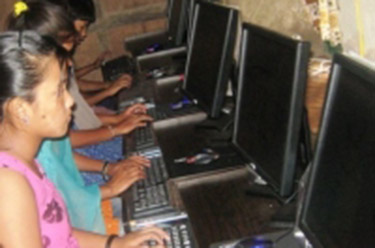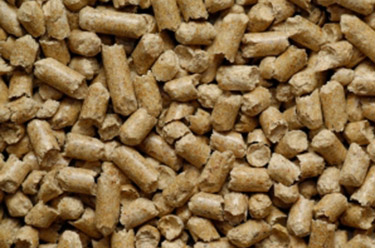Author: Bianca Wisseloo
Smallholder Farmers Closer to Certification
The current market is increasingly asking for certification as a guaranty for sustainability. Smallholder farmers are also confronted with this trend. However, smallholder farmers often lack the right skills and motivation to keep records of their input use and other agricultural data. These data are needed to demonstrate compliance with the respective certification standard.
In order to give this group a hand, CREM, on behalf of the Netherlands Enterprise Agency (RVO), has developed a handbook for smallholder farmers who would like to be certified according to the Roundtable on Sustainable Biomaterials (RSB) standard. (more…)Overtime in Africa Floriculture
Long working hours with lots of overtime are a common feature in the floriculture industry in East Africa. Regular excessively long workdays can be dangerous for workers’ health and have a negative effect on their productivity. A healthy balance between regular work times and overtime is therefore very important.
MPS – the administrator and developer of floriculture standards in the area of sustainability – has included a maximum amount of overtime in its SociallyQualified (SQ) Standard. This overtime must also be voluntary and not structural. (more…)Sustainable Hospitality Now More Visible
Restaurant owners who have filled out theirestablishment’s sustainability profile on the online restaurant guide IENS.nl, can also now showcase their sustainability story on www.duurzamereten.nl, a website about making food more sustainable. The Dutch trade association for the hotel and catering industry (KHN), IENS.nl and CREM worked together to couple the sustainability profile on IENS.nl to one on duurzamereten.nl.
Restaurant owners are thus encouraged to be transparent about their sustainability activities. At the same time, the consumer gets more insight into restaurants’ sustainability initiatives. (more…)
Cacoa Production in the shade
During the yearly meeting of the Society for Environmental Toxicology and Chemistry (SETAC) in Basel, Switzerland, CREM gave a presentation about shade-grown cocoa, its relationship with biodiversity and ecosystem services and payment for these services.
Shade trees provide ecosystem services
Cocoa produces best under shade trees, which is where you find the natural habitat of the cocoa tree. Cocoa trees in such a system (with 40% shade) benefit from diverse ecosystem services: control of sicknesses and pests, better water management and maintenance of soil fertility. Shade trees provide products such as wood, nuts and fruits, which give the farmer additional income. (more…)
Dos and Don’ts of Communication about Sustainable Fashion in the Store
The Mobile Fish, From Boat to Plate
Locally in Action for Biodiversity
South African Certified Biomass Challenge
The project Moving South Africa forward to certified sustainable energy was started out in 2009. The project was managed by the National Development Agency and Tsebo Consulting in South Africa and supported in particular by Gwynne Foster (South Africa), Brinkmann Consultancy (the Netherlands) and CREM.
During the project, small producers were supported in the production of certified biomass and the creation of local employment options. The crops, soy and sunflowers, were cultivated on degraded land. Maize was cultivated in addition to the biomass in order to increase food production in the region. (more…)The Square of the Future
Participation of residents and businesses
(more…)Make way for the smallholder
Smallholders are responsible for a large proportion of all palm oil production. These are mostly family businesses that have one to a few hectares of land. In Indonesia, 30-40% of the palm oil is produced by one million smallholders. The certification of smallholders for sustainable palm oil production has specific sustainability issues associated with it.
There are inequalities between smallholders and palm oil factories in the areas of land rights and contractual dependence relationships. (more…)
How Sustainable is Biomass Production, Actually?
The EU has the goal of reducing the use of fossil fuels and using more biomass for energy production. To reduce negative impacts of the production of biomass, the EU has established sustainability requirements. In the current requirements, however, there are no criteria set forth for social issues or for water, ground and air quality.
The production of sustainable biomass is a common theme in CREM projects. Last month we finished a project about palm oil production in Indonesia and one about the cultivation of soy and sugar cane in Brazil.Social, water, ground and air quality issues
(more…)The Power of Nudging
From good intentions to actual effects
A Dutch steel company provides local communities in the Sahel with simply serviced hand pumps. A horticultural company trains farmers in Africa and Asia. An installation company supports vocational training for girls in Kenya.
These are examples of good projects started by Dutch companies in developing countries. But what barriers to these companies face? How do they find, for example, a reliable social organization to work with? And how do they ensure that they move from good intentions to actual effects? (more…)Can Small Producers Also Supply Green Energy from Bioproducts?
To keep the green motor running, sustainable production is essential. For biofuels – green natural resources turned into fluid fuels such as diesel – there have even been regulations to guarantee their sustainability enacted at a European level.

